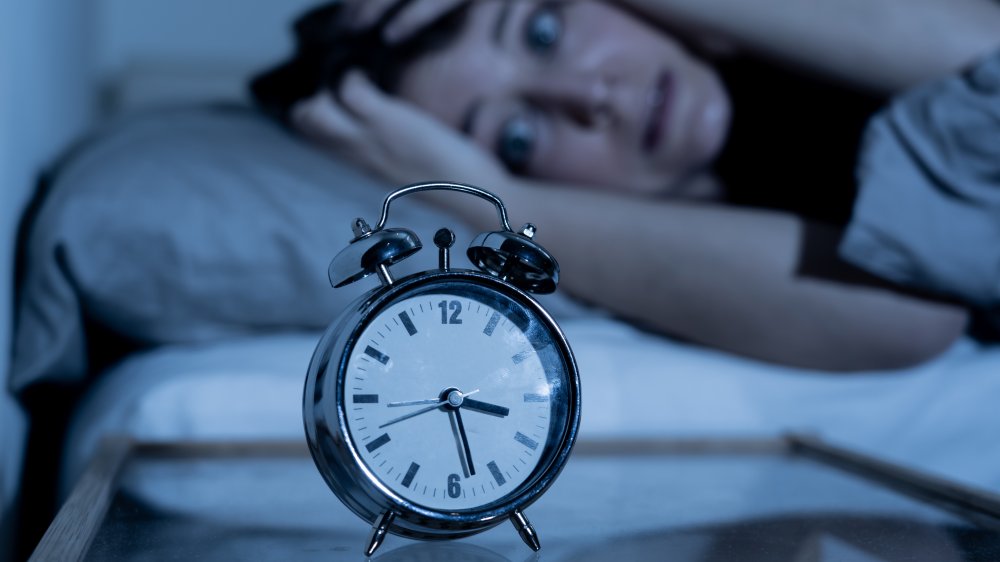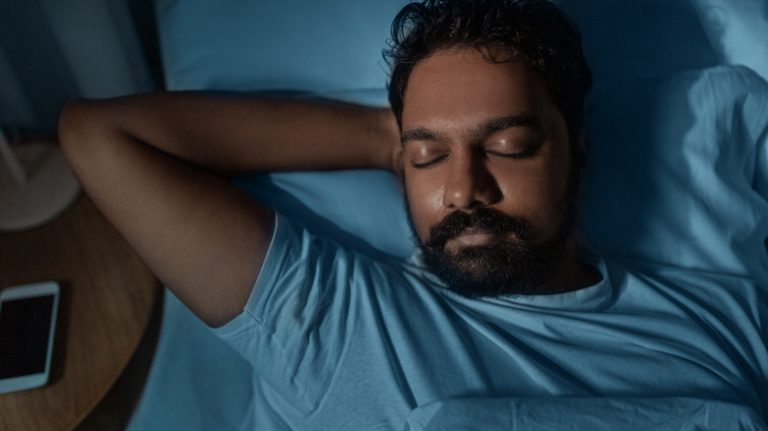Is work pushing you to your limits? Are you going through a difficult breakup which seems to be getting worse every minute? Or is something else bothering you? Whatever the cause of your stress may be, it’s really no surprise that it could be affecting how you sleep.
In the best of times, we know that adequate sleep is essential to overall health and wellbeing. During restful sleep, your body is able to repair itself, strengthen your immune system, reduce stress and improve your mood, decrease inflammation, decrease the risk of developing chronic illnesses like diabetes and heart disease, and help improve cognitive function, among other benefits (via Healthline).
According to The Diagnostic and Statistical Manual of Mental Disorders, Fifth Edition (DSM-5), insomnia is diagnosed by the presence of one or more of the following: difficulty initiating sleep, difficulty maintaining sleep, or early morning awakening, occurring at least three times per week for at least three months (via Medscape). Additional criteria include sleep disturbances which cause clinically significant distress or impairments in social, occupational, educational, academic, behavioral, or other important areas of functioning, and the sleep difficulty occurs despite adequate opportunity for sleep.
Thus, when it comes to stress-induced insomnia, it’s important to identify the cause and work on improving your sleep habits and quality so that you may reap all of the health benefits.
Tips to overcome your insomnia

While your stress may be causing your insomnia, your insomnia may be causing you to experience adverse mental health effects such as depression, increased anxiety, feelings of confusion, irritability or frustration, and emotional instability (via The American Institute of Stress). This can turn stress-related insomnia into what seems like a vicious never-ending cycle, but doctors and researchers have come up with several methods and techniques aimed to break the cycle.
Create a sleep-wake routine. Set a bed and wake time and stick to it every day, including on weekends and vacation. Consistency is key (via Sleep Foundation).
Decrease stimulant use before bed. Try to avoid caffeine, nicotine, and alcohol in the hours preceding sleep. Despite popular belief, drinking alcohol can actually lead to sleep fragmentation. Technology is another stimulant, as the screens of your most beloved gadgets emit blue light, which has energizing effects and can lead to a decrease in sleep-inducing melatonin production. Therefore, it is critical to avoid screen time before bed.
Get moving throughout the day. Johns Hopkins Medicine notes that 30 minutes of moderate aerobic exercise can positively affect the quality of sleep an individual experiences that same day. It is best however to avoid exercise in the hours before bed and encouraged more so in the mornings or early afternoons (via John Hopkins Medicine).
More tips to help with stress-induced insomnia

Get out of bed. If you can’t fall asleep within 15 to 20 minutes of laying down or awakening, get up and move to another location. Try reading, journaling, or meditating, but avoid watching TV or using electronics.
Work on combating your stress. If there is a known stressor in your life that’s causing you to lay awake at night, figure out what can you do to manage it. Techniques include meditation and deep breathing, speaking with a therapist, cognitive behavioral therapy (CBT), and if necessary, appropriate pharmacotherapy.
It’s important to remember that stress-related insomnia does not just appear overnight, but can be gradual — and so can the recovery. Don’t be discouraged if the first thing you try doesn’t work, just turn off the lights, snuggle into bed, and try again.




